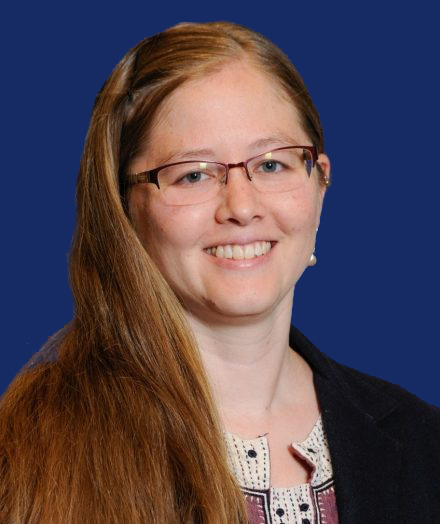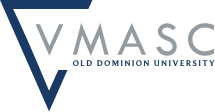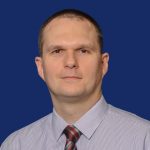Dr. Erika Frydenlund
Research Associate Professor
757 638 4451 | efryden@odu.edu

RESEARCH FIELD OF EXPERTISE & RESEARCH INTERESTS
Computational Social Science and Forced Migration & Displacement
SHORT BIOGRAPHY
Erika Frydenlund’s primary research focus is on migration and mobility. She has a Bachelor’s degree in Mathematics, Master’s degree in Statistics, and Ph.D. in International Studies. Additionally, she has graduate certificates in Women’s Studies and Modeling & Simulation. Much of her work focuses on combining quantitative and qualitative data in simulations for understanding the emergence, dynamics, and consequences of human migration and displacement. Frydenlund primarily works in agent-based modeling, but has experience in other modeling paradigms as well.
EDUCATION
Ph.D. in International Studies, 2015
Old Dominion University (ODU), Norfolk, VA
M.S. in Applied Statistics, 2006
Virginia Tech (VT), Blacksburg, VA
B.S. in Applied Mathematics, 2002
University of South Carolina (USC), Columbia, SC
PROFESSIONAL EXPERIENCE
VMASC, Research Associate Professor
Suffolk, VA
2023 - Present
VMASC, Research Assistant Professor
Suffolk, VA
2016 - 2023
Old Dominion University,
Affiliate Faculty, Graduate Program in International Studies
Norfolk, VA
2017 - Present
VMASC, Senior Project Scientist
Suffolk, VA
2013 - 2016
Old Dominion University,
Adjunct Lecturer, Women’s Studies Department
Norfolk, VA
2015 - 2018
DeVry Institute,
Adjunct Instructor, Statistics
Chesapeake, VA
2008
Tidewater Community College,
Adjunct Instructor, Mathematics
Chesapeake, VA
2007
Virginia Teach,
Graduate Assistant, Statistics Department
Blacksburg, VA
2005 - 2006
Goryogadai High School,
Assistant English Teacher, JET Programme
Kanagawa, Japan
2002 - 2005
MODELING THE POLITICAL & SOCIAL DYNAMICS OF PROTRACTED REFUGEE SITUATIONS
Thematically, our projects look at the macro, meso, and micro-level causes and effects of protracted refugee situations. We are interested in understanding the international affairs that lock refugees in camps or along country borders, how NGOs contribute or exacerbate length of stay in refugee status, and how refugees themselves change through the process and experience of displacement. We are working on modeling the macro-level processes (international affairs) as well as micro-level processes (refugee identities) and the interconnection of NGOs working between the two using system dynamics and agent-based models. We're hoping this leads to insights about possible alternative durable solutions to the three proposed/promoted by the UNHCR.
HEALTH DYNAMICS IN PROTRACTED REFUGEE SITUATIONS
This project looks at the effects of protracted refugee status on chronic health conditions. Refugees are provided food through international nongovernmental organizations that provide the bare minimum caloric intake for human survival, often at the cost of severe malnutrition and chronic diseases that result from nutritional deficiencies and idleness. Refugees in these situations often feel that some conditions—inability to digest corn or diabetes—are death sentences. This project will collect primary data in Greece and Rwanda among refugees and refugee stakeholders to develop models and simulations of health and health consequences in a protracted refugee context. These model(s) could be adapted to understand the dynamics and evolution of protraction in other areas of the world. The data collection and model-building effort would also be supplemented by a data visualization component that would allow one to virtually walk through a refugee camp and learn about the health consequences of life in protracted exile.
SHIFTING REFUGEE IDENTITIES IN PROTRACTED SITUATIONS
This project uses agent-based modeling and extensive survey data collected by Zeynep Sagir in Turkey during her dissertation to understand how refugees integrate with local communities, apply religious coping mechanisms during the integration process, and shift their identities and behaviors over time. Our first model-building session occurred in Lesvos, Greece in May 2017, the second in Kristiansand, Norway in August 2017. This ongoing project is focused on developing algorithms that speak to underlying challenges with integrating vast numbers of refugees into a host community for extended periods of time.
CITIZEN INITIATIVES & POP-UP NGOS IN HUMANITARIAN CRISIS
In this project, we are collaborating with two Global Development experts from the University of Agder in Norway to try to model the way that nongovernmental organizations arise and adapt in contexts of immediate humanitarian crisis. This work is inspired by the varied typology of humanitarian actors that emerged in response to the European refugee crisis, specifically as it happened in Lesvos, Greece. The team met in Lesvos, Greece in May 2017and Kristiansand, Norway in August 2017 to work toward a model that will help policymakers evaluate the responses to the refugee crisis in Lesvos. This work currently uses a system dynamics modeling approach to investigate the relationship between actors in the humanitarian response efforts.
INTERNAL DISPLACEMENT PREDICTIONS IN THE DEMOCRATIC REPUBLIC OF CONGO
We are working on a pilot project with UNOCHA and the MARS team at the University of Hamburg, Germany to try to develop an agent-based model that provides better predictive capabilities of internal displacement than traditional statistical models. The project is currently in its early phases, with a prototype model of North Kivu Province, DRC expected by the end of January.
PEER-REVIEWED JOURNAL ARTICLES
Elzie, Terra, Erika Frydenlund, Andrew Collins, and R. Michael Robinson. (2016). ”Panic that Spreads: Socio-Behavioral Contagions in Pedestrian Evacuations.” Transportation Research Record: Journal of the Transportation Research Board.No. 2586. DOI: 10.3141/2586-01.
Collins, Andrew J., Erika Frydenlund, R. Michael Robinson and Meçit Cetin (2015). Exploring a Toll Auction Mechanism Enabled By Vehicle-To-Infrastructure Technology." Transportation Research Record: Journal of the Transportation Research Board. 2530: 106-113. ISSN: 0361-1981 (SJR Q2 - Civil and Structural Engineering)
Collins, Andrew J., Peter Foytik, Erika Frydenlund, R. Michael Robinson, and Craig A. Jordan (2015). ”Generic Incident Model for Investigating Traffic Incident Impacts on Evacuation Times in Large-Scale Emergencies.” Transportation Research Record: Journal of the Transportation Research Board, 2459: 11-17.
BOOK CHAPTERS
Earnest, David C. and Erika Frydenlund. (2017) ”Flipping Coins and Coding Turtles.” In Saurab Mittal et al., (eds.) Guide to Simulation-based Disciplines: Simulation foundations, methods and applications. Springer International Publishing. DOI 10.1007/978-3-319-61264-5_11
Frydenlund, Erika and David C. Earnest. (2015) ”Harnessing the Knowledge of the Masses: Citizen Sensor Networks, Violence and Public Safety in Mugunga.” In Emilian Kavalski, ed. World Politics at the Edge of Chaos: Reflections on Complexity and Global Life. State University of New York Press. ISBN-13: 978-1-4384-5607-2
Dickerson, Betty and Erika Frydenlund. (2013) ”Examining Marriage Immigration to the United States.” In Kazuo Nakajima, Jhonsu Yoon, and Rie Kondo (eds.) International Comparative Studies on Women Marriage Immigrants and Their Families (グローバル時代における結婚移住女性とその家族 の国際比較研究). Gakujutsu Publishers. ISBN-10: 4284103849
PEER-REVIEWED CONFERENCE PAPERS
Frydenlund, Erika and Jose J. Padilla (2017). ”Modeling the impact of protraction on refugee identity.” Proceedings of the SBP-BRIMS 2017 Conference. Washington, D.C. July 6-8.
Vernon-Bido, Daniele, Erika Frydenlund, Jose J. Padilla, and David C. Earnest (2017). ”Durable solutions and potential protraction: The Syrian refugee case.” Proceedings of the 2017 Spring Simulation Multi-Conference. Virginia Beach, VA. April 23-26.
CV/RESUME
Dr. Erika Frydenlund
Research Associate Professor
757 638 4451 | efryden@odu.edu

RESEARCH FIELD OF EXPERTISE & RESEARCH INTERESTS
Computational Social Science and Forced Migration & Displacement
SHORT BIOGRAPHY
Erika Frydenlund’s primary research focus is on migration and mobility. She has a Bachelor’s degree in Mathematics, Master’s degree in Statistics, and Ph.D. in International Studies. Additionally, she has graduate certificates in Women’s Studies and Modeling & Simulation. Much of her work focuses on combining quantitative and qualitative data in simulations for understanding the emergence, dynamics, and consequences of human migration and displacement. Frydenlund primarily works in agent-based modeling, but has experience in other modeling paradigms as well.
EDUCATION
Ph.D. in International Studies, 2015
Old Dominion University (ODU), Norfolk, VA
M.S. in Applied Statistics, 2006
Virginia Tech (VT), Blacksburg, VA
B.S. in Applied Mathematics, 2002
University of South Carolina (USC), Columbia, SC
PROFESSIONAL EXPERIENCE
VMASC, Research Assistant Professor
Suffolk, VA
2016 - Present
Old Dominion University,
Affiliate Faculty, Graduate Program in International Studies
Norfolk, VA
2017 - Present
VMASC, Senior Project Scientist
Suffolk, VA
2013 - 2016
Old Dominion University,
Adjunct Lecturer, Women’s Studies Department
Norfolk, VA
2015 - 2018
DeVry Institute,
Adjunct Instructor, Statistics
Chesapeake, VA
2008
Tidewater Community College,
Adjunct Instructor, Mathematics
Chesapeake, VA
2007
Virginia Teach,
Graduate Assistant, Statistics Department
Blacksburg, VA
2005 - 2006
Goryogadai High School,
Assistant English Teacher, JET Programme
Kanagawa, Japan
2002 - 2005
MODELING THE POLITICAL & SOCIAL DYNAMICS OF PROTRACTED REFUGEE SITUATIONS
Thematically, our projects look at the macro, meso, and micro-level causes and effects of protracted refugee situations. We are interested in understanding the international affairs that lock refugees in camps or along country borders, how NGOs contribute or exacerbate length of stay in refugee status, and how refugees themselves change through the process and experience of displacement. We are working on modeling the macro-level processes (international affairs) as well as micro-level processes (refugee identities) and the interconnection of NGOs working between the two using system dynamics and agent-based models. We're hoping this leads to insights about possible alternative durable solutions to the three proposed/promoted by the UNHCR.
HEALTH DYNAMICS IN PROTRACTED REFUGEE SITUATIONS
This project looks at the effects of protracted refugee status on chronic health conditions. Refugees are provided food through international nongovernmental organizations that provide the bare minimum caloric intake for human survival, often at the cost of severe malnutrition and chronic diseases that result from nutritional deficiencies and idleness. Refugees in these situations often feel that some conditions—inability to digest corn or diabetes—are death sentences. This project will collect primary data in Greece and Rwanda among refugees and refugee stakeholders to develop models and simulations of health and health consequences in a protracted refugee context. These model(s) could be adapted to understand the dynamics and evolution of protraction in other areas of the world. The data collection and model-building effort would also be supplemented by a data visualization component that would allow one to virtually walk through a refugee camp and learn about the health consequences of life in protracted exile.
SHIFTING REFUGEE IDENTITIES IN PROTRACTED SITUATIONS
This project uses agent-based modeling and extensive survey data collected by Zeynep Sagir in Turkey during her dissertation to understand how refugees integrate with local communities, apply religious coping mechanisms during the integration process, and shift their identities and behaviors over time. Our first model-building session occurred in Lesvos, Greece in May 2017, the second in Kristiansand, Norway in August 2017. This ongoing project is focused on developing algorithms that speak to underlying challenges with integrating vast numbers of refugees into a host community for extended periods of time.
CITIZEN INITIATIVES & POP-UP NGOS IN HUMANITARIAN CRISIS
In this project, we are collaborating with two Global Development experts from the University of Agder in Norway to try to model the way that nongovernmental organizations arise and adapt in contexts of immediate humanitarian crisis. This work is inspired by the varied typology of humanitarian actors that emerged in response to the European refugee crisis, specifically as it happened in Lesvos, Greece. The team met in Lesvos, Greece in May 2017and Kristiansand, Norway in August 2017 to work toward a model that will help policymakers evaluate the responses to the refugee crisis in Lesvos. This work currently uses a system dynamics modeling approach to investigate the relationship between actors in the humanitarian response efforts.
INTERNAL DISPLACEMENT PREDICTIONS IN THE DEMOCRATIC REPUBLIC OF CONGO
We are working on a pilot project with UNOCHA and the MARS team at the University of Hamburg, Germany to try to develop an agent-based model that provides better predictive capabilities of internal displacement than traditional statistical models. The project is currently in its early phases, with a prototype model of North Kivu Province, DRC expected by the end of January.
PEER-REVIEWED JOURNAL ARTICLES
Elzie, Terra, Erika Frydenlund, Andrew Collins, and R. Michael Robinson. (2016). ”Panic that Spreads: Socio-Behavioral Contagions in Pedestrian Evacuations.” Transportation Research Record: Journal of the Transportation Research Board.No. 2586. DOI: 10.3141/2586-01.
Collins, Andrew J., Erika Frydenlund, R. Michael Robinson and Meçit Cetin (2015). Exploring a Toll Auction Mechanism Enabled By Vehicle-To-Infrastructure Technology." Transportation Research Record: Journal of the Transportation Research Board. 2530: 106-113. ISSN: 0361-1981 (SJR Q2 - Civil and Structural Engineering)
Collins, Andrew J., Peter Foytik, Erika Frydenlund, R. Michael Robinson, and Craig A. Jordan (2015). ”Generic Incident Model for Investigating Traffic Incident Impacts on Evacuation Times in Large-Scale Emergencies.” Transportation Research Record: Journal of the Transportation Research Board, 2459: 11-17.
BOOK CHAPTERS
Earnest, David C. and Erika Frydenlund. (2017) ”Flipping Coins and Coding Turtles.” In Saurab Mittal et al., (eds.) Guide to Simulation-based Disciplines: Simulation foundations, methods and applications. Springer International Publishing. DOI 10.1007/978-3-319-61264-5_11
Frydenlund, Erika and David C. Earnest. (2015) ”Harnessing the Knowledge of the Masses: Citizen Sensor Networks, Violence and Public Safety in Mugunga.” In Emilian Kavalski, ed. World Politics at the Edge of Chaos: Reflections on Complexity and Global Life. State University of New York Press. ISBN-13: 978-1-4384-5607-2
Dickerson, Betty and Erika Frydenlund. (2013) ”Examining Marriage Immigration to the United States.” In Kazuo Nakajima, Jhonsu Yoon, and Rie Kondo (eds.) International Comparative Studies on Women Marriage Immigrants and Their Families (グローバル時代における結婚移住女性とその家族 の国際比較研究). Gakujutsu Publishers. ISBN-10: 4284103849
PEER-REVIEWED CONFERENCE PAPERS
Frydenlund, Erika and Jose J. Padilla (2017). ”Modeling the impact of protraction on refugee identity.” Proceedings of the SBP-BRIMS 2017 Conference. Washington, D.C. July 6-8.
Vernon-Bido, Daniele, Erika Frydenlund, Jose J. Padilla, and David C. Earnest (2017). ”Durable solutions and potential protraction: The Syrian refugee case.” Proceedings of the 2017 Spring Simulation Multi-Conference. Virginia Beach, VA. April 23-26.
CV/RESUME











